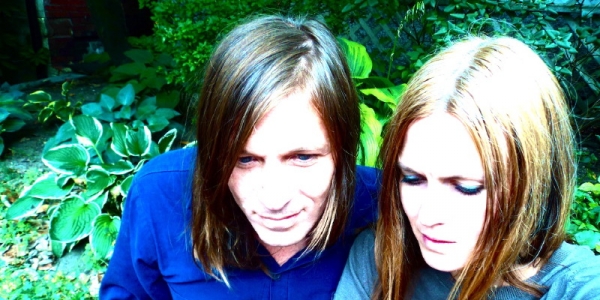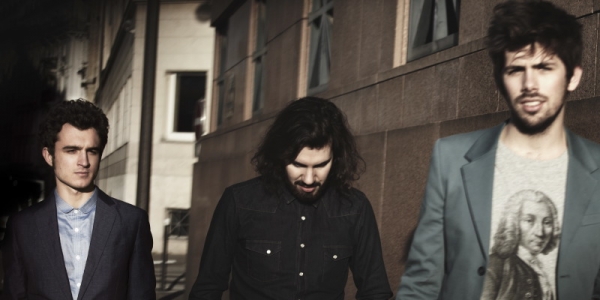Given that recent context, it wasn’t entirely surprised that initial attempts to speak to Dando about his forthcoming tour with Hatfield proved unsuccessful as well. The first two attempts met with enigmatic failure – on the second occasion, calls to each of the three alternative telephone numbers provided went unanswered – until finally, both a joint interview with Dando and Hatfield was scheduled. And, surprise, surprise, it went all perfectly to plan.
According to legend, Dando and Hatfield met a gig in Boston, when Hatfield and her then band, the Black Babies went to see Dando in The Lemonheads. “Me and my first band, we went to see The Lemonheads – we had the first Lemonheads single, and we listened to it, and it was really great,” begins Hatfield. Dando remembers encountering the members of the Black Babies, albeit with the odd skewed image.
“The drummer had a really nice rack,” adds Dando, to Hatfield’s amusement.
“She did, she had a really nice rack,” Hatfield laughs.
“Yeah, it was a great rack of toms,” Dando clarifies.
“Actually, she didn’t have a rack of toms at all,” Hatfield counters.
Double entendre or not, Dando was sufficiently impressed by the Black Babies cassette he subsequently procured to go and see Hatfield on stage.
“My mom saw them play before I did,” Dando says.
“My mom?,” quizzes Hatfield.
“Yeah, I think our moms knew each other already,” Dando says.
While Hatfield has previously cited X’s Exene Cervenka and Olivia Newton-John as formative influences on her musical style, Dando sees influences closer to home. “I like Peter Allen as well,” Dando says, indulging his well-known affection for all things Australian. “But as for Exene Cervenka – I don’t really hear that, at least not in the vocals. I can hear more The Replacements in her singing than X, I suppose,” he muses.
Hatfield and Dando went on to become good friends and strong musical collaborators. In the early ’90s, Hatfield leant her skills as a bass player on The Lemonheads’ now classic It’s A Shame About Ray. “I was just playing bass, and I think Evan had a pretty clear idea of the bass lines he wanted,” Hatfield says.
Dando may have been the artistic director, but he recognises Hatfield’s significant contribution to the album. “You made some pretty good bass lines. Turnpike Down – that’s all you,” he says.
“I really felt that I was helping out with something that was Evan’s vision,” Hatfield says.
“I’m so glad you played on that record,” Dando says.
Both Dando and Hatfield have experienced the highs and lows of fame. In Dando’s case, the peak came with The Lemonheads’ popular and commercial success in the wake of It’s A Shame About Ray and C’mon Feel The Lemonheads; in the aftermath, Dando plunged into years of drug and alcohol addiction, culminating with a number of stints at rehabilitation facilities. With Hatfield, fame came with the release of Become What You Are with the Juliana Hatfield Three; as the dream of alt-rock stardom began to fade, Hatfield retreated from the spotlight, uninterested in pursuing a career in the popular limelight. “We didn’t really help each other, but when the press started picking up on us together, it was a way of deflecting the attention away from me,” Hatfield says.
“We were easy targets, too,” Dando says.
Dando recalls one particular event in the early ’90s when he stepped in to help his friend and musical collaborator. “One time I did try and help you out – you remember on the David Letterman Show, you were a bit freaked out. That was one time when I consciously tried to help out,” Dando says.
“Yeah, I was booked on Letterman at the last minute, just myself with the house band, and I got really nervous, so I called Evan to come and play me,” Hatfield recalls. “That was very nice of you, thanks, Evan.”
Hatfield acknowledges that the attention bestowed upon her 20 years ago was magnified due to her gender. “A lot of the commentary I got was gender-based, or gender-flavoured, and that really annoyed me, because I didn’t think of myself as a female artist, but just as an artist,” Hatfield says.
“You can’t win with that one, because the more they notice it, the more it becomes about that,” Dando observes.
“I didn’t want to talk about it – I just wanted to get on with making music,” Hatfield says.
This month sees Dando and Hatfield returning to Australia for a series of shows in which the pair will play a mixture of classic Dando and Hatfield compositions, punctuated with the odd cover. “It’ll be two guitars, two singers – that’s all I know at the moment. Evan, what do you think?” Hatfield enquires. “What songs? I don’t know yet. We’ll both sing, electric guitars, maybe some guests as well,” Dando says.
“There’s certain songs I’ll want to do, and certain songs he’ll want to do,” Hatfield says.
BY PATRICK EMERY







